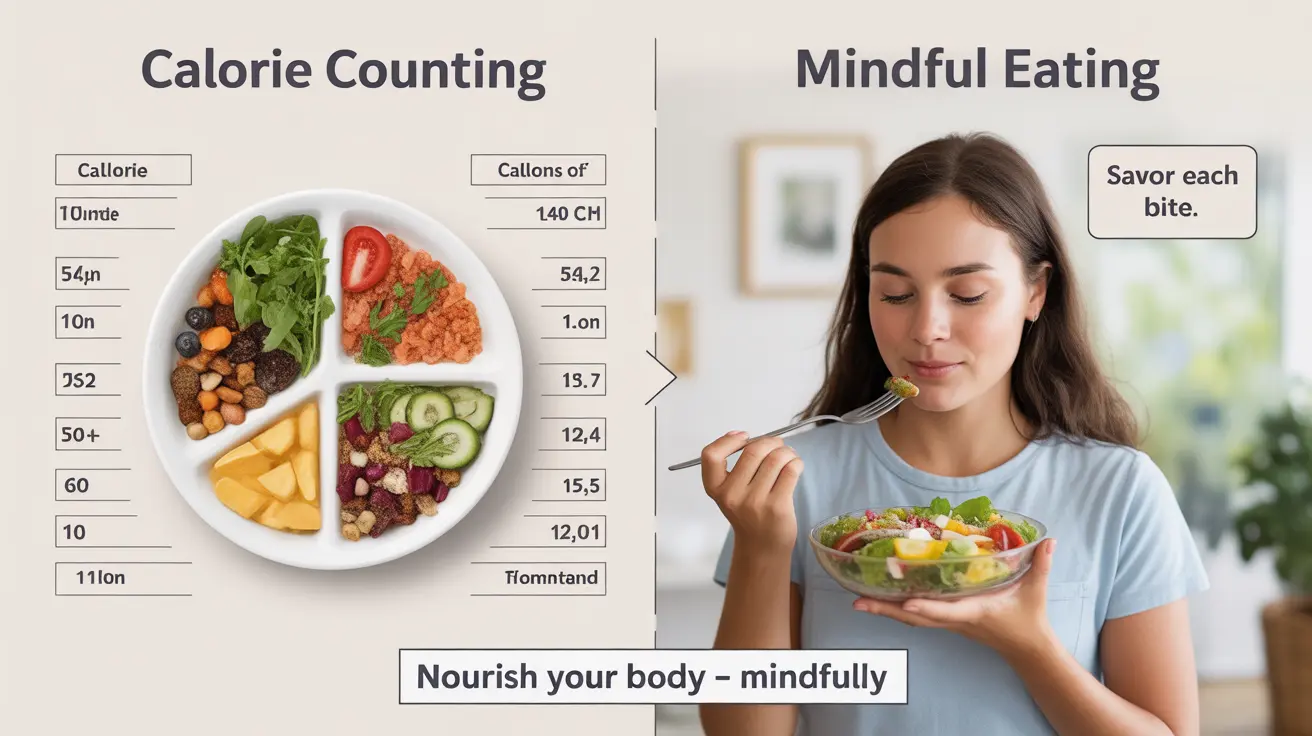For decades, calorie counting has been promoted as the gold standard for weight management. But as our understanding of nutrition and weight loss evolves, many people are questioning whether tracking every calorie is truly effective or necessary. This comprehensive guide examines the science behind calorie counting and explores alternative approaches to weight management.
Understanding Calorie Counting
Calorie counting involves tracking the energy content of everything you eat and drink throughout the day. The basic principle suggests that creating a caloric deficit—consuming fewer calories than you burn—leads to weight loss. While this fundamental concept is scientifically sound, the practice of counting calories isn't always as straightforward as it seems.
The Science Behind Calorie Counting
Research shows that a caloric deficit is indeed necessary for weight loss. When you consume fewer calories than your body needs for daily functions, it begins to use stored fat for energy. However, several factors complicate this simple equation:
Metabolic Variations
Individual metabolism can vary significantly based on factors like age, muscle mass, hormones, and genetics. This means that two people following identical calorie restrictions might experience different results.
Calorie Accuracy Issues
Food labels can be inaccurate by up to 20%, and measuring portions precisely is challenging in real-world settings. Additionally, the body doesn't absorb all calories equally from different types of foods, particularly when considering factors like food preparation methods and gut health.
Benefits of Calorie Counting
Despite its limitations, calorie counting can offer several advantages:
- Increased awareness of portion sizes
- Better understanding of food energy content
- Systematic approach to weight management
- Concrete data for tracking progress
Potential Drawbacks and Risks
While calorie counting works for some people, it's important to consider the potential downsides:
- Time-consuming and potentially stressful
- May lead to obsessive behaviors
- Could ignore nutritional quality
- Might affect social eating experiences
- Risk of developing disordered eating patterns
Alternative Approaches to Weight Management
Several evidence-based alternatives to calorie counting can be equally or more effective:
Mindful Eating
This approach focuses on eating slowly, recognizing hunger and fullness cues, and enjoying food without judgment. Research suggests it can be effective for weight management while promoting a healthier relationship with food.
Macro-Based Tracking
Instead of counting calories, some people prefer tracking macronutrients (proteins, fats, and carbohydrates). This method can help ensure proper nutrition while managing weight.
Portion Control
Using simple visual guides for portion sizes can be an effective alternative to precise calorie counting, making weight management more sustainable long-term.
Frequently Asked Questions
Does counting calories really work for weight loss, and is it necessary?
While calorie counting can be effective for weight loss, it's not necessary for everyone. Research shows that creating a caloric deficit through any reliable method can lead to weight loss. Some people achieve this through portion control or mindful eating without strict calorie tracking.
What alternatives to calorie counting can help with managing or losing weight?
Effective alternatives include mindful eating, portion control, focusing on whole foods, tracking macronutrients, and using the plate method (filling half your plate with vegetables, quarter with protein, and quarter with complex carbohydrates).
How does calculating macronutrients differ from counting calories, and which is more effective for weight management?
Macro tracking focuses on the balance of proteins, fats, and carbohydrates rather than total calories. While both methods can be effective, macro tracking often leads to better food quality choices and may be more sustainable for some people.
Are there potential health risks associated with calorie counting, such as disordered eating?
Yes, calorie counting can lead to obsessive behaviors and disordered eating patterns in susceptible individuals. It's important to maintain a balanced approach and seek professional guidance if counting calories begins to cause anxiety or restrictive behaviors.
What's the difference between calorie counting and intuitive eating, and which method is better for long-term weight loss?
Calorie counting is a structured approach focusing on numbers, while intuitive eating emphasizes listening to body signals and making mindful food choices. Research suggests intuitive eating may be more sustainable long-term, though individual results vary based on personal preferences and lifestyle factors.




